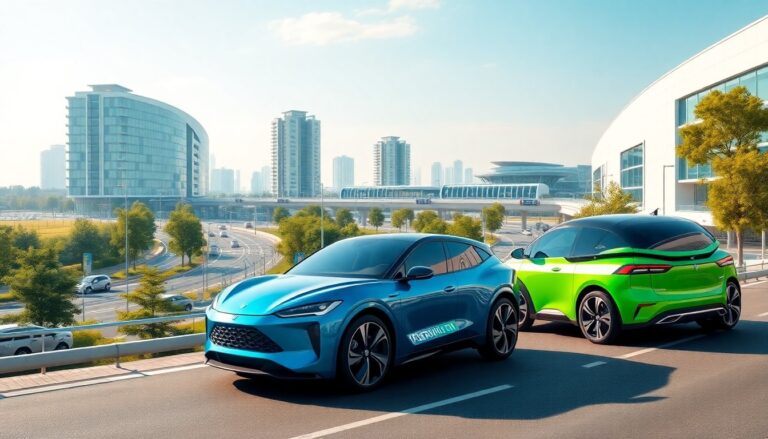Argomenti trattati
The automotive industry is currently navigating a crucial transformation driven by rapid technological advancements. Innovations such as electric vehicles (EVs) and autonomous driving are redefining our understanding of mobility. This article examines the most significant trends and innovations that are shaping the future of automotive technology.
Electric vehicles and sustainability
Among the most significant developments in the automotive sector is the emergence of electric vehicles. As awareness of climate change and sustainability grows, manufacturers are increasingly investing in EV technology. Electric vehicles are more than just a passing trend; they signify a fundamental shift in our approach to both personal and commercial transportation.
The rise of EV infrastructure
The rapid increase in electric vehicles (EVs) has created an urgent need for expanded charging infrastructure. Both governments and private companies are actively working to install more charging stations, facilitating consumer adoption of this technology. By the target date of 2030, the aim is to ensure widespread access to fast-charging stations. This expansion is essential to lower the barriers for potential EV buyers. Such developments in infrastructure are vital for the future of electric mobility.
Autonomous vehicles and AI integration
A significant trend shaping the automotive industry is the integration of artificial intelligence (AI) within vehicles. Over the past decade, autonomous driving technology has advanced considerably, with leading companies such as Tesla and Waymo at the forefront. The implications of autonomous vehicles are extensive, influencing various aspects from road safety to urban planning.
Safety and regulatory challenges
Autonomous vehicles promise significant advantages, yet they face numerous challenges. Safety remains a primary concern for the public. The technology must undergo rigorous testing to ensure it can navigate unpredictable road conditions and respond appropriately to human behaviors. Furthermore, regulatory frameworks are struggling to keep pace with this rapid innovation. Lawmakers are currently examining how to effectively govern the deployment of autonomous vehicles on public roads.
Connectivity and the Internet of Things (IoT)
The emergence of the Internet of Things (IoT) is transforming the automotive industry by facilitating communication between vehicles and their environments. This level of connectivity significantly enhances safety features, improves traffic management, and provides a smoother user experience. For example, vehicles that communicate with traffic signals can adjust their speed to avoid unnecessary stops, resulting in more efficient driving.
Impact on user experience
Connected vehicles extend beyond safety enhancements; they also significantly improve the overall user experience. Features such as smart infotainment systems and real-time traffic updates contribute to a more engaging driving environment. As technology progresses, we can anticipate even more sophisticated features that align personal preferences with vehicle functionality, fundamentally changing how we engage with our cars.
The future of automotive technology
The automotive industry is entering a transformative phase characterized by rapid technological advancements and evolving consumer preferences. The shift towards electric vehicles, the integration of artificial intelligence for autonomous driving, and the growing presence of Internet of Things (IoT) connectivity are poised to redefine mobility.
As these trends develop, stakeholders across the automotive sector must remain agile and innovative. This adaptability is crucial for maintaining relevance in a fast-paced environment. Manufacturers, consumers, and policymakers share the responsibility of navigating the complexities of this changing landscape.
Understanding the implications of these advancements is essential. The automotive industry stands at the forefront of a revolution driven by technology, and the ability to respond effectively to these changes will shape its future.

